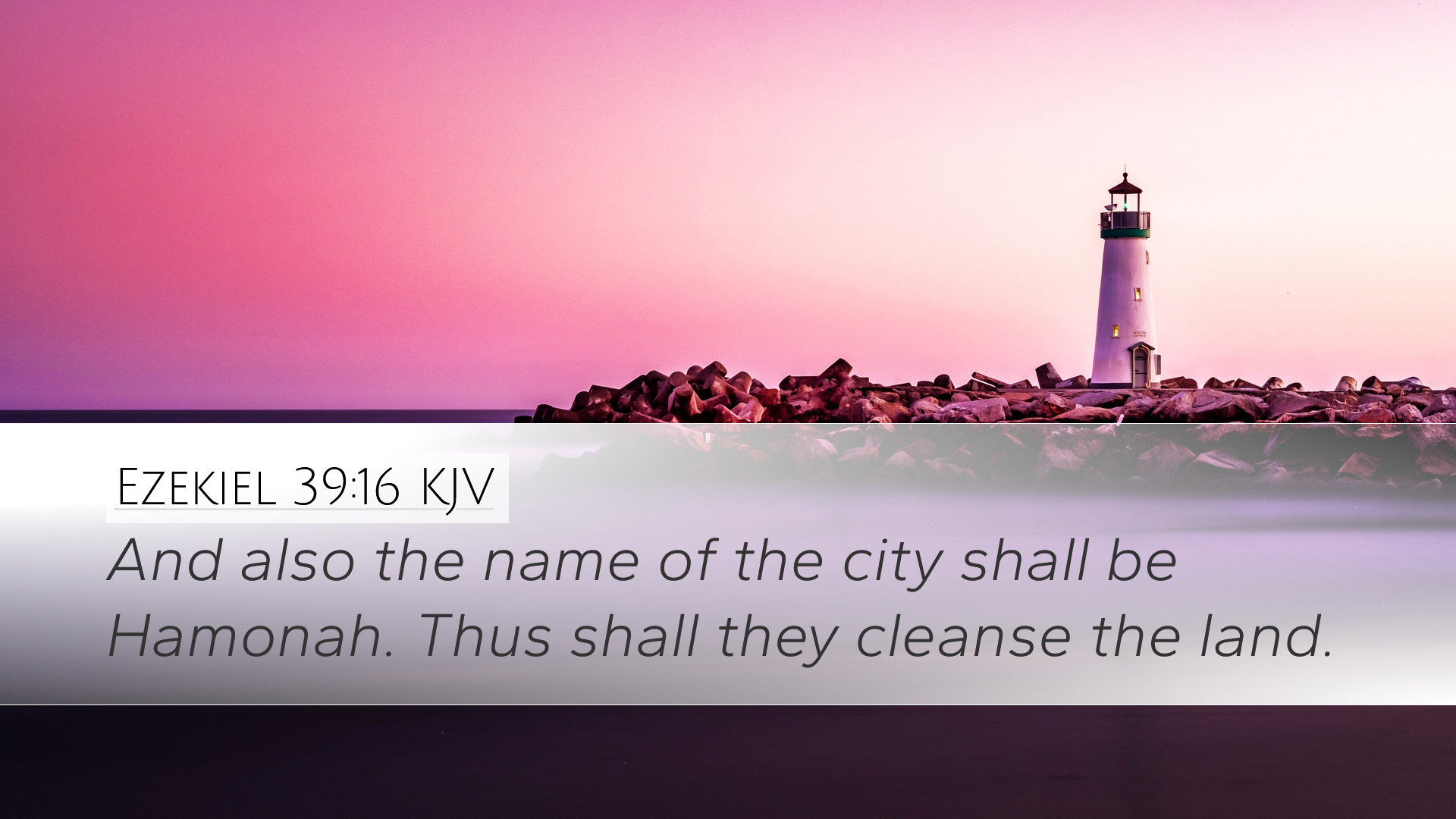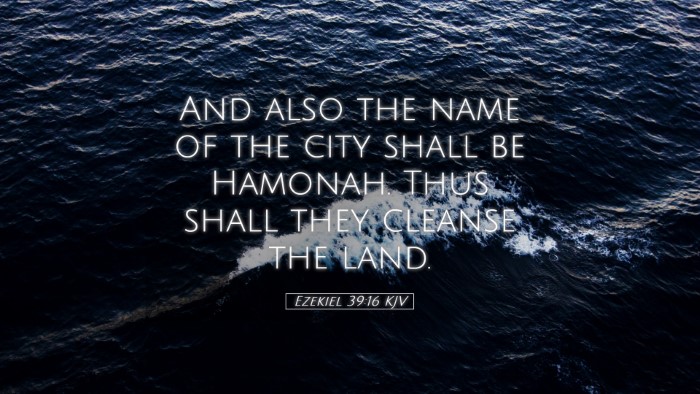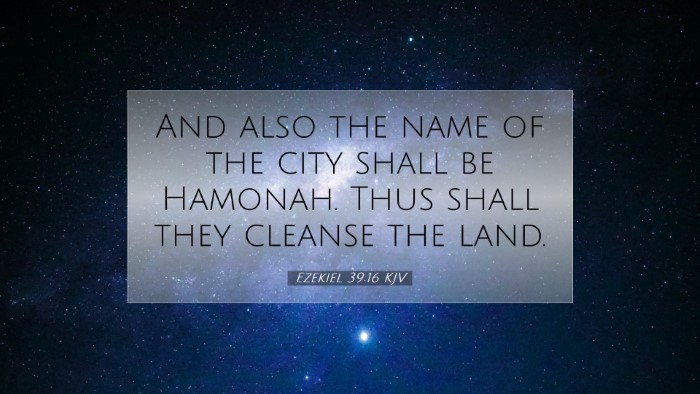Ezekiel 39:16 Commentary
Bible Verse: "And also the name of the city shall be Hamonah. Thus shall they cleanse the land."
Ezekiel 39:16 presents an important message about cleansing and restoration following divine judgment. This verse is part of a larger prophecy concerning the future of Israel after its enemies have been defeated. The city named "Hamonah" symbolizes a place of great slaughter, reflecting the dramatic and victorious nature of God’s intervention on behalf of His people. Below we explore various insights derived from established public domain commentaries.
Historical Context
The context of Ezekiel 39 reveals a period marked by judgment against Israel's adversaries, specifically Gog and Magog, whom God vanquishes to demonstrate His sovereignty and faithfulness to Israel. Matthew Henry notes that the prophecy serves as a reminder of God's power to protect and restore His covenant people.
Significance of the Name 'Hamonah'
Albert Barnes discusses the implication of the name 'Hamonah', which signifies "multitude" or "clutter." This signifies the overwhelming nature of the divine judgment experienced by those who stood against God’s people, as the valley, filled with the slain, becomes a testament to God’s justice.
- Symbol of Judgment: The name reflects not just destruction but the fulfillment of divine prophecy.
- Sign of Cleansing: The process of naming emphasizes the thorough cleansing of the land, both of sin and of enemies.
Thematic Elements in Ezekiel 39:16
Adam Clarke emphasizes the theological implications, focusing on themes of renewal and restoration following devastation. The cleansing of the land signifies not just a removal of physical enemies but also a purging of iniquity, preparing the way for the reestablishment of God’s presence among His people.
- Restoration of Worship: The land cleansed prepares for the resumption of holy worship, indicative of God's desire to dwell among His people once more.
- Hope for the Future: Despite prior judgments and desolation, God’s promise offers hope as He provides a future characterized by peace and divine favor.
Exegetical Insights
The mention of cleansing in Ezekiel 39:16 indicates a thorough divine action whereby the land previously defiled by idolatry and violence is restored. Matthew Henry highlights that the cleansing is as important as the destruction, as it signifies God’s relentless commitment to holiness among His people.
- Holiness and Cleansing: The cleansing is a vital part of God’s redemptive plan and reveals His character as both just and merciful.
- Divine Intervention: The passage reflects how God intervenes in history, setting His affairs for the good of His covenant people.
Theological Implications
The theological implications of the name Hamonah and the subsequent cleansing process are profound. According to Albert Barnes, it illustrates the intricate balance of God’s justice and mercy. The judgment against enemies leads to a deeper relationship with God for His people.
- God’s Sovereignty: The victory of Israel over its foes emphasizes God's control over the nations.
- Restorative Justice: Rather than mere punishment, God's actions guide His people towards a future rooted in righteousness.
Application for Believers
For pastors and theologians, Ezekiel 39:16 serves as a source of encouragement. The verse opens avenues for reflection on God’s faithfulness despite apparent desolation, urging believers towards hope and renewal in their own lives and communities. Clarke suggests that this cleaning of the land metaphorically serves as an example for personal spiritual renewal.
- Personal Reflection: Reflect on areas in one’s life needing divine cleansing and restoration.
- Community Engagement: Encourage collective pursuit of holiness and righteousness in the community.
Conclusion
The prophetic vision encapsulated in Ezekiel 39:16 not only chronicles a historical event but also signifies the broader themes of cleansing, restoration, and the unwavering commitment of God to His people. By studying this passage, believers can draw insights that reaffirm their faith and inspire them to act within their communities as vessels of God’s cleansing and restorative power.


